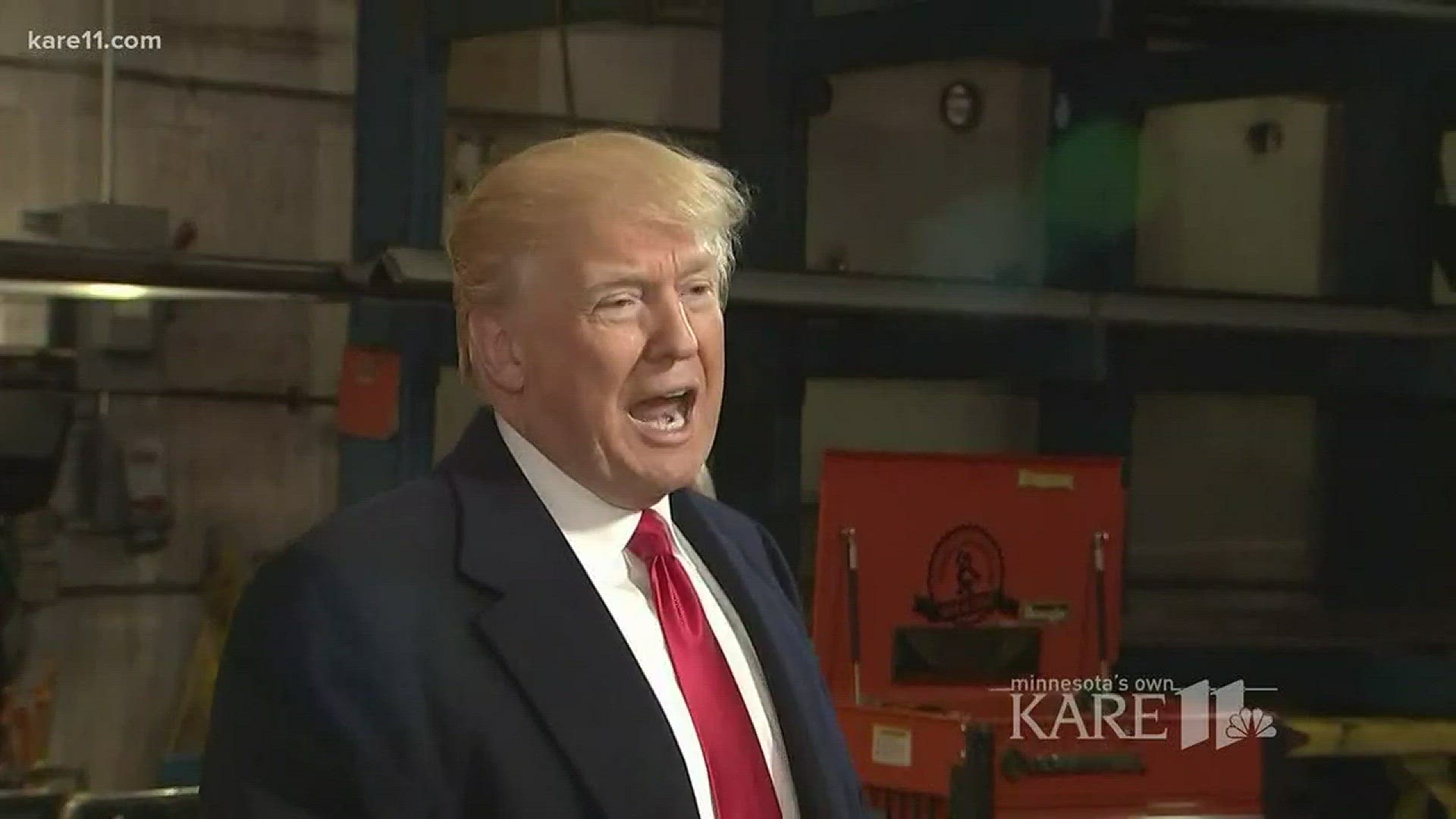MINNEAPOLIS -- The latest showdown over the federal budget has all the hallmarks of previous shutdown scares.
Partisans use the threat of a shutdown as leverage to pass legislation that didn't make it through the Congressional grinder on previous attempts, and both sides do their best to blame the impasse on their opponents.
"Congress has routinely failed to pass the appropriations bills and get them signed by the president by their annual deadline of October first," Kathryn Pearson, a Congressional politics expert at the University of Minnesota, told KARE.
"But what congress typically does is pass a short-term, continuing resolution to keep the government funded. Congressional budgeting is broken."
Pearson noted that many members of Congress, on both sides of the aisle, aren't happy doing things this way.
"That's because government shutdowns are actually very costly for the American public," Pearson explained. "They create a lot of uncertainty for federal agencies, they’re inefficient, and they create a host of other problems, not the least of which is the public no longer feels the government is responsive and able to get its job done."
She noted that the 2013 and 1996 shutdowns came during times of divided government. In 1996 Congressional Republicans clashed with Democratic President Bill Clinton, and in 2013 Republicans in Congress battled Democratic President Barack Obama.
This time, by contrast, the GOP controls Congress and the White House.
"Although Republicans control the White House and both branches of Congress, and thus the agenda, they do need Democratic votes in the Senate because to pass a continuing resolution that’s not filibustered requires 60 votes in the Senate."
Friday's developments
Senate Republicans urged Democrats to help them pass the temporary budget resolution that had passed the US House the night before. That resolution includes money to keep the Children's Health Insurance Program, or CHIP, afloat for another month. The CHIP program provides health coverage for 9 million children nationwide.
But Senate Democratic Leader Chuck Schumer of New York has been holding out, in hopes of saving the DACA, or Deferred Action on Childhood Arrivals, program. President Obama used an executive order to create DACA, which allows undocumented immigrants brought to the United States as children before 2007 to go to school and work legally.
President Trump signed an executive order in September eliminating DACA, effective March 2018. He reasoned that would give Congress enough time to establish DACA through legislative action, possibly as part of broader immigration reforms.
On Friday, Mick Mulvaney, the Director of the Office of Management and Budget, told reporters that DACA can wait.
"DACA doesn’t expire until March 5th, this is purely an attempt by the Senate Democrats, led by Mr. Schumer -- that’s why we call it the 'Schumer Shutdown' -- in order to try and get a shutdown they think this president gets blamed for," Mulvaney remarked.
But Sen. Dick Durbin, an Illinois Democrat, argued on the Senate floor that it is an urgent matter.
"There is an urgency in their lives because of the uncertainty of tomorrow, whether tomorrow will mean deportation for themselves and their families."
Even Republican Lindsey Graham asserted in conversations with reporters that DACA should be part of the overall budget solution.
President Trump met privately with Sen. Schumer in the White House Friday afternoon, but Schumer emerged to say they still had many unresolved issues.
The president, after a rally in Pittsburgh, told reporters that Democrats were forcing a shutdown to distract from his victories on the economy and the tax overhaul.
"The democrats want to see a shutdown to get off this subject, because this subject is not working for them. The tax cuts and tax reforms has not been working well for the Democrats."
The House's budget resolution also included something the Minnesota delegation has backed, a repeal of the federal excise tax on medical devices. The tax was part of the original Affordable Care Act, designed to help pay for the federal subsidies the law provides.
Sen. Amy Klobuchar and 3rd District Congressman Erik Paulsen had previously succeeded in getting the medical device tax temporarily suspended, but it's scheduled to click back on again.
Possible impacts
As many as 850,000 federal workers could be furloughed temporarily if there's no deal by midnight Friday night. Active duty military and TSA workers at airport would stay on the job, but civilian employees of the military would be in jeopardy of going on leave.
Many routine government functions, such as passports and Social Security status changes could also be affected. National parks and monuments may also go into a full or partial shutdown mode.
The IRS would continue to collect taxes even in a shutdown, and the United States Postal Service would keep rolling along because it's an independent entity now.

